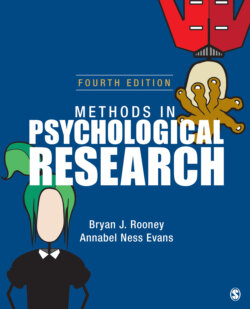Читать книгу Methods in Psychological Research - Annabel Ness Evans - Страница 85
На сайте Литреса книга снята с продажи.
The Discussion
ОглавлениеThe dissertation adviser of one of the authors of this book told her that he never read the discussion section of research reports. He was not interested in the interpretation of the authors. He interpreted the findings and their importance himself. We consider this good advice for seasoned researchers but not for students. The discussion section of a research article is where the author describes how the results fit into the literature. This is a discussion of the theories that are supported by the research and the theories that are not. It is also where you will find suggestions from the author as to where the research should go in the future—what questions are left unanswered and what new questions the research raises. Indeed, the discussion section may direct you in your selection of a research project. You may wish to contact the author to see if research is already being conducted on the questions posed in the discussion. Remember that it is important to be a critical consumer of research. Do not simply accept what is said in the discussion. Ask yourself if the results really do support the author’s conclusions. Are there other possible interpretations?
In the discussion section of our example article, Knez (2001) relates the findings to his previous work and the research of others. He discusses the lack of effect of light on mood and questions the mood measure that was used. We think that another possibility, which he does not explore, is that lighting may not have an influence on mood. He also describes the effect of light on cognitive performance as being something new to the literature. We could speculate that this small effect might not be a reliable finding. Certainly, the weak p values reported in the results section would indicate either that the study should be replicated or that the results were a fluke. Again, as we said before, you need to be critical when reading the literature.
